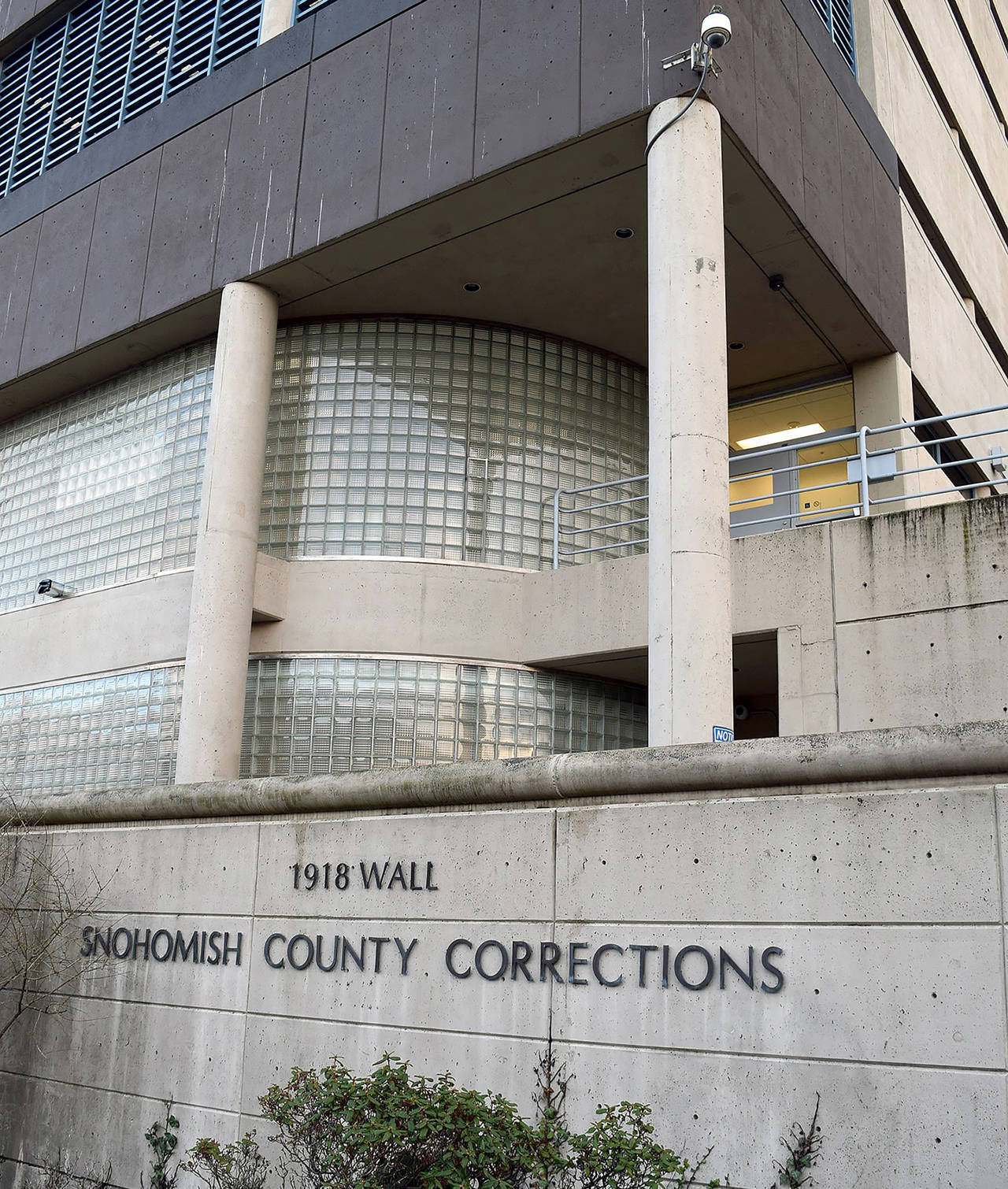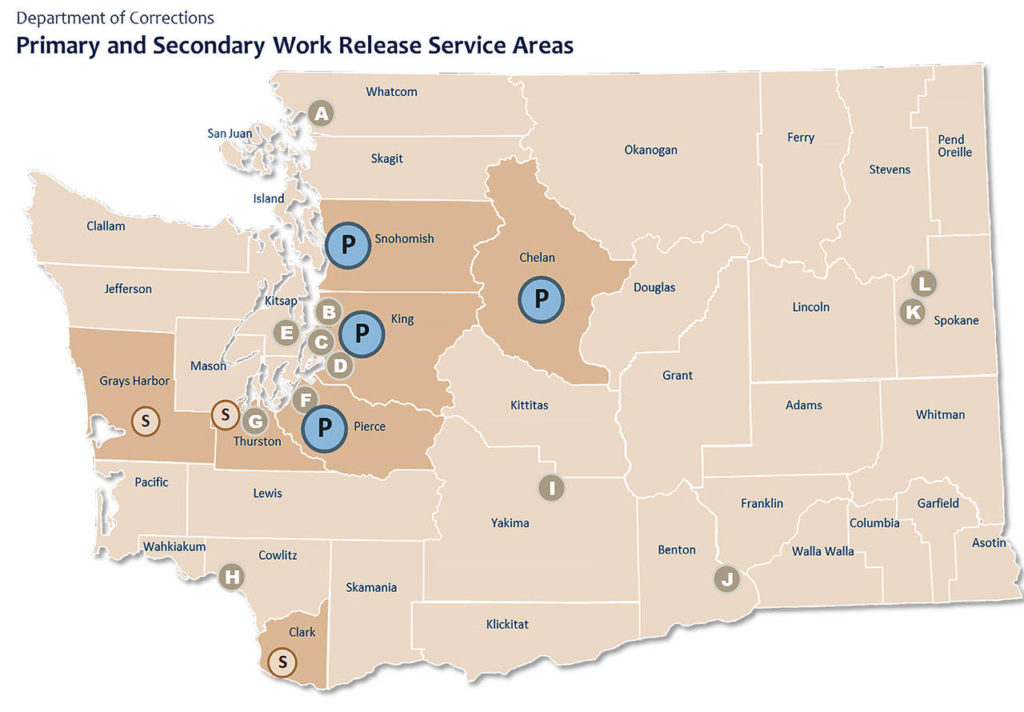OLYMPIA — A new state-run work release facility for up to 100 convicted criminals may land in Snohomish County as early as next year.
The state Department of Corrections wants to expand its work release program by 200 beds and is focused on finding places for them in Snohomish, Pierce, King and Chelan counties.
Conversations on a potential size and location of a facility are just getting started. There will be a full public process, including community meetings to gather opinions of residents, said Janelle Guthrie, the department’s communications director.
The agency is “committed” to getting new facilities running as soon as the middle of next year, according to the department’s expansion implementation plan released Sept. 1.
“Work release is a great tool,” said Snohomish County Sheriff Ty Trenary.
While he’s “absolutely open” to the corrections department setting up shop in the county, he stressed it needs to be adequately funded to ensure each person admitted is properly monitored and managed.
“It cannot become an unfunded mandate” on the county, he said. “I am not interested in having a partially funded program dumped in our lap.”
Washington created its work release program in 1967. Today there are 12 facilities able to handle up to 741 men and women. That number is expected to increase to 782 as result of minor capacity-increasing remodeling at several facilities, according to an agency report.
Far more people would participate if the state had room.
As of June 2019, there were 1,188 men and 216 women behind bars who have been screened and approved for the work release program. They are waiting for bed space to become available, though many will likely complete their sentences before that occurs.
After numerous studies detailing the need, lawmakers agreed earlier this year to put $9.1 million toward adding 200 beds in the system.
Initially, the department is looking to open facilities of up to 50 beds in Chelan County and up to 100 beds in both Snohomish and Pierce counties, plus a reentry center in King County. Those counties were deemed to be the most underserved or unserved.
But none may actually wind up with a facility.
Final decisions will be made based on the greatest need, as well as other factors such as available properties, potential operating costs and community concerns, the report states.
“The ideal location would be a property in operational condition for immediate use with sufficient space for separate bedrooms or dorm-style housing; restrooms, showers, and laundry facilities; food services; common and recreation areas; and, office space,” according to the report.
The agency, which is looking to lease, “is optimistic that there are solutions that will meet program needs and financial constraints.”
Snohomish County doesn’t have a state-run facility, even though it boasts the third-largest population in Washington. King County has three facilities, Spokane County two and Pierce County one.
The county had a work release program until Jan. 1, 2017 when Trenary shut it down to deal with a budget shortfall.
He then set out to repurpose the facility into a program to divert people from jail and get others off the streets and into long-term recovery for addiction and mental illness. It reopened in 2018 as the 44-bed Snohomish County Diversion Center.
Snohomish County Prosecutor Adam Cornell is a fan of work release programs and welcomes the state shouldering the financial burden.
“I am strongly in support of an alternative to incarceration like work release where it is appropriate,” he said Thursday. “Sometimes there are better options than jail.”
It is not open to everyone, he stressed. State law lays out a screening process to determine if a person is eligible.
“Where appropriate, when someone who has a job and is supporting their family and trying to be a productive member of society, incarcerating them and taking that away doesn’t make sense,” he said.
Sheriff’s Sgt. Adam Fortney, who is challenging Trenary in the November election, would back a state-run facility.
“Work release is a good option when the courts see fit to impose that type of sentence,” he said in an email. “It still holds people accountable, yet lets them still function within their professions so there is not a permanent loss of their jobs and being able to provide for their families.”
Jerry Cornfield: 360-352-8623; jcornfield@herald net.com. Twitter: @dospueblos
Talk to us
> Give us your news tips.
> Send us a letter to the editor.
> More Herald contact information.


























